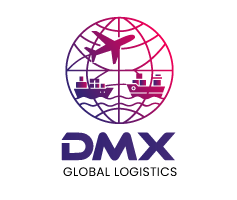
Every successful international shipment starts with proper shipping documentation. For businesses trading with Dubai and the UAE, getting the paperwork right is crucial. It ensures smooth customs clearance, faster delivery, and hassle-free logistics operations.
Dubai is one of the busiest logistics and re-export hubs globally. Jebel Ali Port is among the top 10 in the world, and Dubai International Airport handles over 2.3 million tonnes of air freight each year. This active logistics environment requires careful attention to documentation. A small mistake or missing document can lead to extra charges, delays, or penalties.
The UAE has a strong and well-connected logistics infrastructure that supports trade around the world. However, to fully benefit from this system, businesses must manage import and export documentation carefully.
This blog will discuss the key shipping documents, their purposes, and the UAE-specific requirements that every importer and exporter should know for smooth and compliant logistics operations.
Learning the Basics: 3PL & 4PL in Documentation Management
Before getting started on specific documents, it’s helpful to understand the logistics environment and methods that support them. Most businesses in Dubai depend on Third-Party (3PL) or Fourth-Party Logistics (4PL) providers. These companies handle not only transportation but also help with documentation and regulatory coordination.
3PL providers – assist with freight forwarding, warehousing, and customs clearance documentation.
4PL providers – manage multiple logistics partners, optimize the entire supply chain, and handle all documentation and compliance.
For businesses doing large-scale trading through Dubai or UAE Free Zones, hiring experienced logistics partners to handle paperwork ensures everything is accurate, fast, and follows all the rules.
The Foundational Four: Key Documents for Every Shipment
Every international shipment depends on four essential documents that form the foundation of global trade. These records ensure smooth customs clearance, accurate tracking, and legal compliance. While specific requirements may vary by cargo type, destination, or transport mode, these four remain fundamental to most international shipments.
1. Commercial Invoice
The Commercial Invoice is a detailed record of the transaction between buyer and seller and is essential for customs valuation.
Purpose: Customs officials use it to determine duties and taxes.
Key details:
- Exporter and importer details
- Full description of cargo
- Harmonized System codes
- Unit price, total value, and currency
- International Commercial Terms and country of origin
UAE Insight: In Dubai, customs duties are usually 5% of the CIF (Cost, Insurance, and Freight) value for most products. Even a small difference between the invoice and other documents can lead to inspections or delays.
2. Packing List
This document lists all the packages in your shipment. The invoice shows costs, while the packing list shows what’s physically inside
Purpose: Helps customs authorities verify contents during inspection.
Key details:
- list of products
- Net and gross weights
- Package dimensions
- Shipping marks and serial numbers
UAE Insight: At Dubai’s Jebel Ali Port and Al Maktoum Airport, a precise packing list helps ensure cargo handling accuracy—especially in mixed or consolidated shipments.
3. Bill of Lading (B/L) or Air Waybill (AWB)
Issued by the carrier, this document serves as the contract between the shipper and the transporter.
Purpose:
- Proof of receipt of goods
- Contract for transportation
- (For sea freight) Title of ownership
Key details:
- Shipper, consignee, and carrier details
- Port or airport of loading and discharge
- Description of goods and weight
UAE Insight: In the UAE, electronic Bills of Lading (eB/L) are increasingly accepted under trade digitalization initiatives. However, some banks or customs clearances may still require original paper copies.
4. Certificate of Origin (COO)
The COO certifies where the goods were produced, which determines tariff eligibility.
Purpose: Customs uses it to apply trade agreement benefits or duty exemptions.
Issued by: Chamber of Commerce or an authorized body.
UAE Insight: Under the UAE’s trade agreements with various global partners, goods accompanied by a valid Certificate of Origin (COO) may qualify for reduced or zero customs duties.
Specialized Documents for the UAE Market
Given Dubai’s position as a global trade and re-export hub, the UAE enforces specific documentation standards to maintain transparency, safety, and compliance. These specialized documents ensure smooth customs processes and adherence to national and international trade regulations.
1. Bill of Entry (for Imports)
Filed electronically via Dubai Trade (Mirsal 2), the Bill of Entry declares imported goods for clearance.
Missing or inconsistent information can lead to cargo detention until corrections are made.
2. Shipping Bill (for Exports)
Exporters must file this to declare goods being sent out of the UAE. It serves as an official export record and helps calculate trade statistics.
3. Dangerous Goods Declaration (DGD)
Mandatory for hazardous shipments, such as chemicals or batteries, ensuring compliance with IATA and IMO regulations.
4. Import and Health Certificates
Certain categories—like food, cosmetics, and pharmaceuticals—require clearance from Dubai Municipality or the Ministry of Health and Prevention.
Financial & Legal Supporting Documents
In addition to the main shipping documents, financial and legal documents are very important for keeping international trade safe. They make sure that payments are safe, that goods are safe while they are being shipped, and that global trade and banking rules are followed
L/C or Letter of Credit
This helps ensure safe payments between buyers and sellers. UAE banks handle the following international standards (UCP 600).
Insurance Certificate: This is proof that the goods are covered by insurance in case they are lost or damaged while being shipped.
Importers in the UAE often need this for customs clearance or financing purposes.
Step-by-Step: How to Prepare Documentation Efficiently
- Obtain an Import-Export Code: Mandatory for UAE-based businesses engaging in cross-border trade.
- Confirm Sales Terms: Define Incoterms and payment terms clearly.
- Create a Pro Forma Invoice: Used for buyer confirmation and L/C opening.
- Prepare Core Documents: Ensure data consistency across all documents.
- Book Shipment: Obtain the B/L or AWB from the carrier.
- Apply for Certificates: Such as COO or DGD if required.
- Submit for Customs Clearance: Through Dubai Trade or UAE Customs portals.
- Track the Shipment: Use real-time tracking platforms for visibility.
- File Import Declarations: On arrival, complete the Bill of Entry.
- Release and Deliver Cargo: Once cleared, and payment is complete.
Conclusion: Turning Documentation into a Competitive Advantage
Shipping documentation is playing a major role in every successful export and import. For businesses in Dubai and across the UAE, where compliance and speed are both important, mastering documentation or trusting it to an experienced logistics partner can ease the burden of documentation and lead to your business’s success.
At DMX Global Logistics, we specialize in navigating the documentation needs of the UAE. From customs paperwork and certificates to coordinating different types of transport, we make sure every shipping step follows local and international rules. With proper documentation, real-time tracking, and regulatory expertise, businesses can trade with confidence knowing their cargo will move smoothly across borders.
